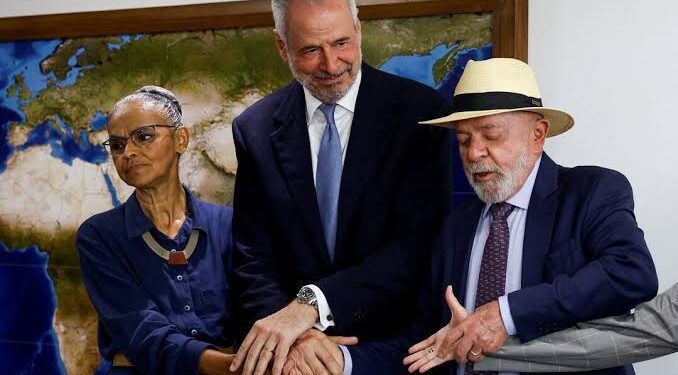Brazil is preparing to host the COP30 global climate summit in 2025. It will focus on highlighting the financial needs of developing nations in combating climate change. The summit comes at a critical time when international climate negotiations face significant challenges. This includes the United States’ decision to withdraw from the Paris Agreement.
The Challenge of Climate Finance
At COP29 in Azerbaijan, developed countries pledged $300 billion annually by 2035 to support climate efforts in developing nations. This pledge, though an increase from the previous $100 billion target, falls far short of the $1.3 trillion per year that these nations claim is necessary. Without U.S. participation, achieving even this commitment becomes more difficult.
Andre Correa do Lago, Brazil’s Ambassador and the newly appointed president of COP30, emphasized the significance of the U.S. role in global climate finance. Under President Joe Biden, the U.S. had championed climate policies and strengthened multilateral development banks to fund climate initiatives. Now, with the U.S. stepping back, the financial burden on developed nations grows heavier, risking further delays in meeting critical climate goals.
Developing Nations Stand United
Developing countries are presenting a unified front against calls from wealthier nations to expand the donor base for climate finance. Wealthy nations argue that emerging economies like China and Gulf states, which are major polluters, should contribute financially. However, Correa do Lago dismissed this notion, stating it would reduce the financial obligations of historically high emitters, which he deemed “profoundly wrong.”
Emerging economies have already made significant strides in combating climate change. Brazil has intensified efforts to curb deforestation, while China’s investments in clean energy technologies, such as solar panels and electric vehicles, have significantly lowered costs for developing nations. These efforts, Correa do Lago argued, hold far more value for poorer countries than symbolic financial contributions.
BRICS and the Role of Emerging Economies
Brazil, which holds the presidency of the BRICS group this year, aims to leverage this forum to build consensus among developing nations. BRICS members, including China, India, Russia, and South Africa, are expected to play a crucial role in resisting attempts by wealthy nations to shift financial responsibilities onto emerging economies.
During last year’s G20 summit in Brazil, developing nations successfully blocked a proposal by wealthier countries to include emerging economies in climate finance obligations. Correa do Lago, a key negotiator at the time, views BRICS as a vital platform to strengthen the collective voice of developing nations at COP30.
China’s Contributions to the Global Fight
China, the world’s largest emitter of greenhouse gases, has faced criticism for not contributing to international climate finance. However, Correa do Lago highlighted China’s substantial investments in renewable energy and its role in lowering the global cost of clean technologies. These contributions, he said, have a more meaningful impact on global climate efforts than financial donations alone.
China’s climate envoy, Liu Zhenmin, acknowledged at COP29 the global expectation for China and the EU to lead in the absence of the U.S. He admitted that while such cooperation is desirable, it is difficult to achieve.
Brazil’s Leadership at COP30
Brazil is poised to use its role as host and its leadership in BRICS to champion the interests of developing nations. Correa do Lago stressed that Brazil will work tirelessly to ensure that wealthy nations fulfill their commitments and that the financial burden does not shift to countries already making significant climate investments.
The COP30 summit will test the resilience and determination of developing nations as they push for a fairer distribution of climate finance responsibilities. With Brazil at the helm, the summit aims to amplify their voices and secure tangible commitments to address the urgent climate crisis.
The world now watches as Brazil leads the charge to hold wealthier nations accountable and ensure a more equitable path forward in the fight against climate change.
Related Stories:
COP29 in Baku Unveils Key Highlights, Financial Pledges, and Lingering Gaps in Climate Action
Trump Withdraws US from Paris Climate Agreement for Second Time
COP29 Climate Talks End with $300 Billion Annual Pledge, Guterres Calls Deal a ‘Base to Build On’
















